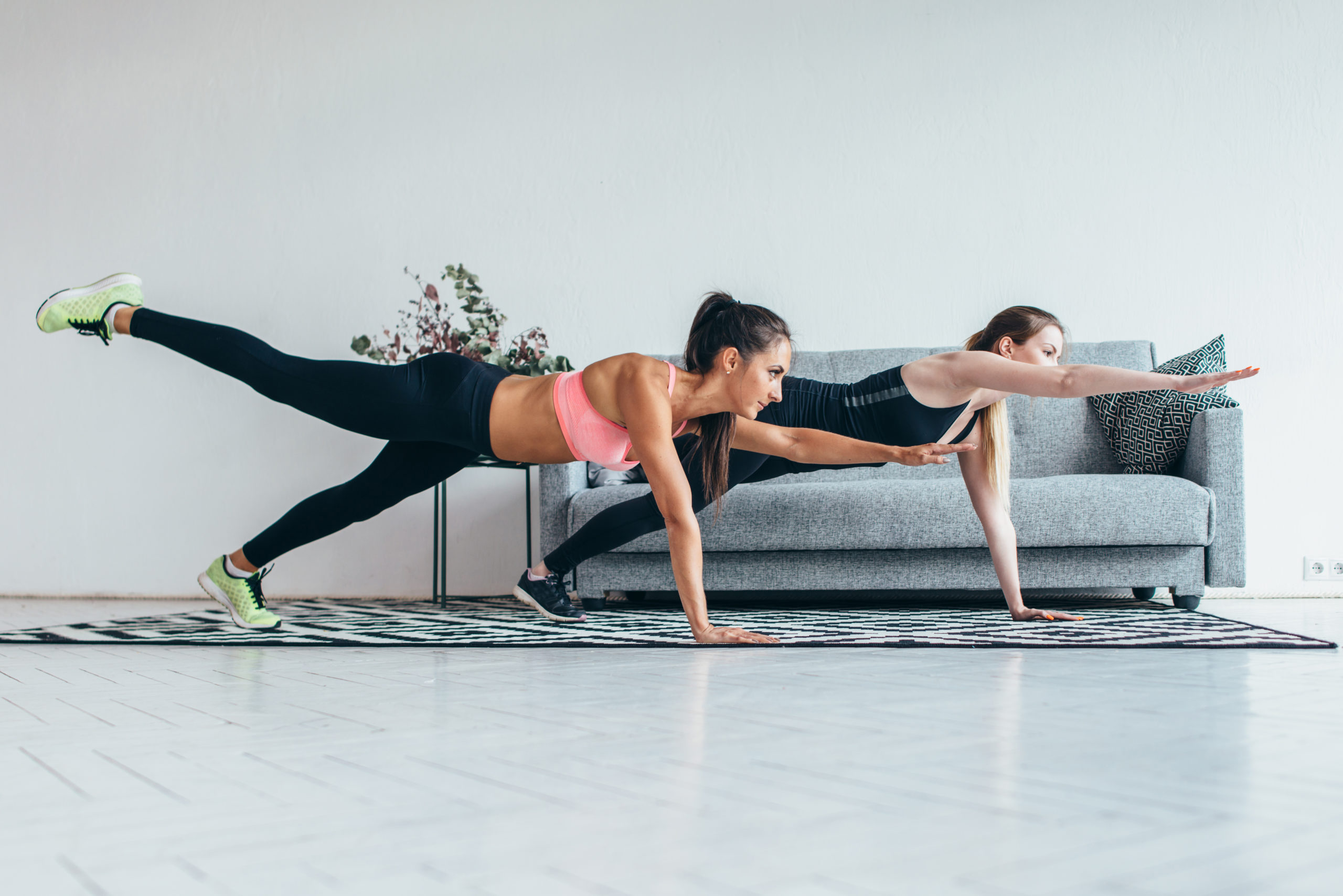
Fit women doing one hand one leg plank exercise workout at home
The coronavirus lockdown has many people focusing on moving their bodies. Faced with the prospect of not being able to go to a gym or a class, many have turned to YouTube and Instagram in search of workouts.
While it’s good to exercise, of course, you also need to be careful of how it’s done. The margin of error for bad form and mistakes may increase exponentially at home.
The good news is that fixing these issues is as easy as making them in the first place. The first step is recognizing what you’re doing wrong, so that you can address it. Here are a handful of common mistakes people make:
Wearing yourself out to get better and faster results
Lots of people really believe that if you don’t get tired, if you’re not stiff the next day, or if you don’t train at a high intensity and with 100% motivation every day, then you’re not making progress or doing anything to make up for being stuck inside, and that will be good for losing weight.
This is the greatest myth and lie, insisting that ”’train hard’ and ’no pain, no gain’ are lies.”
Listen to your body, and take everything at a pace.
Thinking that sweating means you’ll lose weight
Nothing could be further from the truth. You sweat when you get dehydrated, and that’s why you shouldn’t exercise wearing lots of clothing or in a very warm setting.
When you get dehydrated, the same thing happens as when you overtrain. It’s counterproductive, and it’s also dangerous for your health.
Not staying properly hydrated
Water must be by your side throughout the entire routine. Water is more than enough to keep you hydrated; you don’t need sugary sports drinks.
Keeping hydrated makes up for all the water you loss when you work out.
Thinking you’re doing it better because you’re shaking
Don’t push yourself too hard at first or you’ll risk getting an injury.
It’s not healthy for your muscles to shake during a plank exercise and for you to be encouraged to hold on.
Always doing everything really fast or getting really tired and finishing with your legs like Jell-O isn’t healthy either, according to healthline.com.
Working above or below your abilities
You need to measure your strength to know where both your upper and lower limits are.
If you want the exercise to be effective Huffington post recommends getting a heart rate monitor. Then figure our your target heart rate for your age and health status and strive to work in that range.
Not resting or listening to your body
Rest is part of training and it’s really necessary so your body can regenerate tissues and improve bone quality after exercising.
it’s important to know how to listen to your body when you exercise, as well as when it should rest.
If we’re not able to listen to it and then the next day we don’t stop or we take it up a notch, the only thing we’ll end up doing is get injured.